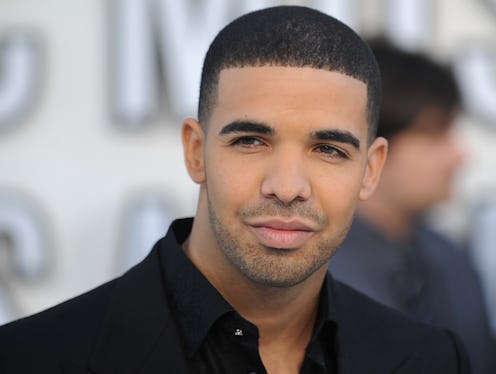Entertainment
6 Times Drake Addressed Race Issues
Drake, as we all know, is a very outspoken rapper. He's not one to mince words when it comes to his emotions or perspectives. While his music does tend to be lighthearted in comparison to a lot more hard-hitting rappers out there, he does not shy away from broaching tough issues, either. One topic Drake has addressed is race, and baggage that sadly comes with it.
Sometimes the rapper addresses these problems in his songs. Other times, he does it in interviews. If you're a bit surprised to hear that Drake has chimed in on hot button issues, don't be embarrassed. After all, he is not known for being quite as forthcoming about speaking on these issues as other rappers, such as Kendrick Lamar or J. Cole. He is a bit more under the radar about it when he takes a stand, but it's worth paying attention to what he does have to say.
Drake speaking and rapping about race is not only a way for him to comment on the current state of society, it also is a chance for him to speak about growing up biracial and relate to fans who have similar experiences. Drake's experience in the larger overarching cultural narrative matters. And as it turns out, he has a lot of insightful things to say about race.
Interview with Katie Couric
Drake sat down with Couric in 2010 for a little Q&A with fans from Twitter, and the conversation briefly touched on race. The rapper talked about being teased for growing up both Jewish and black and the impact it had on him.
Village Voice Interview
Drake opened up about people's comments on his skin tone to The Village Voice in 2011. He said, "I mean, I'm so light that people are like 'you're white.' That's what I get more than anything, people saying 'you're white, you're not black.'" He also opened up about the "light-skinned complex," saying, "That's a very American thing as well, light skin and dark skin, like I don't even notice that. Girls will be like "oh I've seen you talk to dark-skinned girls, that's so good." And I'm like "why? I talk to any girl!" I talk to anybody, you know?"
Vibe Cover Story
He opened up to Vibe for their race-centered edition in December 2013 about the different types of racism he's experienced over the years. On growing up Jewish in Toronto, he said, "Jewish kids didn't understand how I could be black and Jewish, 'cause we're all young. It was just stupid, annoying rich kids that were close-minded and mean." He also addressed more visible racism in Tennessee when he went to visit his father. He said, "We would stop off in places, like, bad places. Places where there's nobody at the tables, but they look at you, like, 'Nah, we're full.' That happened to us before."
"Worst Behavior" Music Video
Drake went back to his father's digs in Memphis to film this video. And as you can see, there is quite a bit of poverty in that area. “I kind of refused to address my real thing that I have there, which is vast family,” he told Vibe in November 2013. “It’s always going to be tough — it was tough during the video. You want to see everybody do well… Instead of running from it, I just embraced it and shot this incredible, beautiful video with my beautiful family and helped out as many people as I could while I was there. Now I can’t wait to go back.”
"You And The 6"
"I used to get teased for being black, and now I'm here and I'm not black enoughCause I'm not acting tough or making stories up bout where I'm actually from"
In his song dedicated to his mom, Drake talks about the paradox of being considered both "black" and "not black" in different social circles and the implications of both. The first implies that he's seen as an "other" in Canada, whereas the second implies that being "black" means that he should be "acting tough," especially since rap has a reputation for being such a macho industry. So even though these are just two lines from a song, there's a lot of rich material to delve in here.
"6 PM In New York"
"And I heard someone say something that stuck with me a lotBout how we need protection from those protectin' the block Nobody lookin' out for nobody Maybe we should try and help somebody or be somebody Instead of bein' somebody that makes the news So everybody can tweet about it And then they start to RIP about it And four weeks later nobody even speaks about it Damn, I just had to say my piece about it Oh you gotta love it But they scared of the truth so back to me showin' out in public That's a hotter subject"
This is perhaps the boldest statement Drake has made about race issues so far. The song, from If You're Reading This It's Too Late, addresses police relations with communities and also addresses the problem of people mourning a death online but then forgetting about it with the next big news story that comes along. Thankfully, it looks like Drake has not forgotten. And hopefully he will continue to speak out about it, so that other people will not forget.Image: Getty Images
